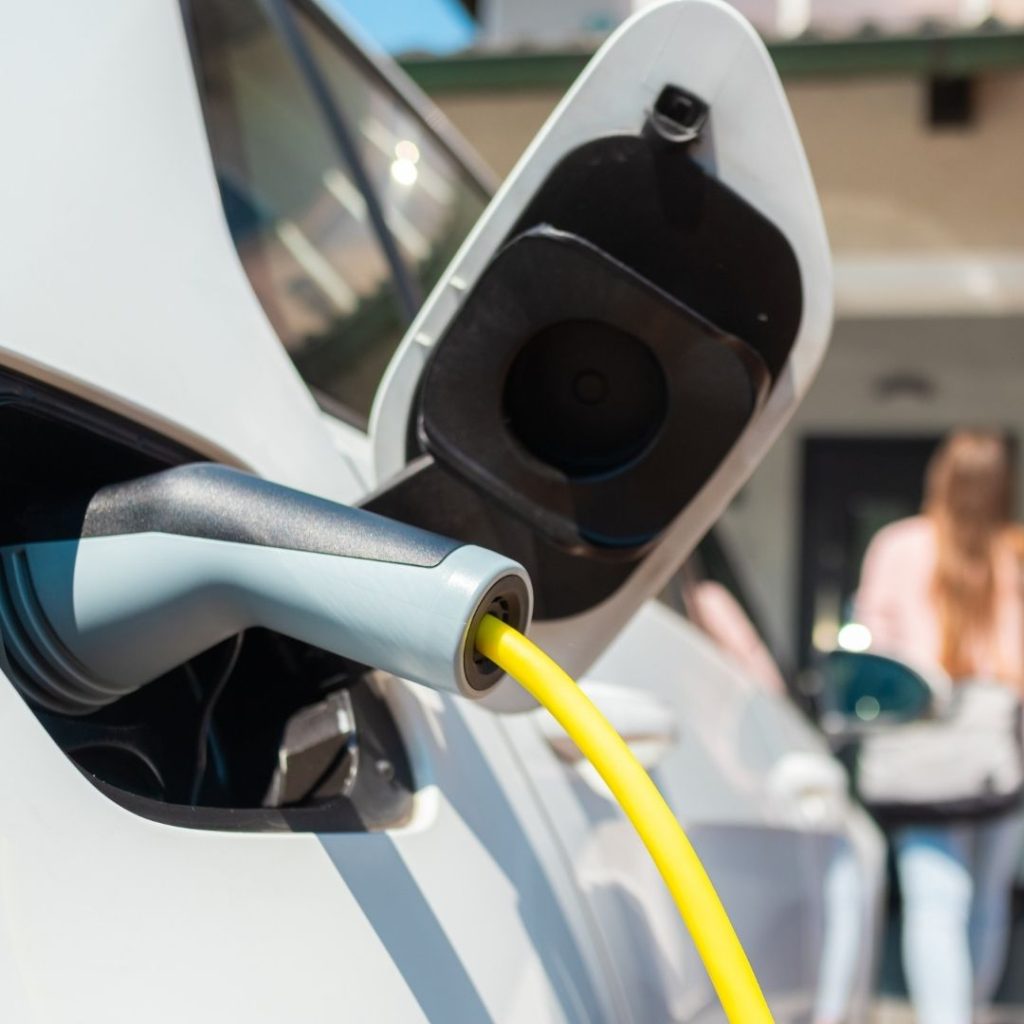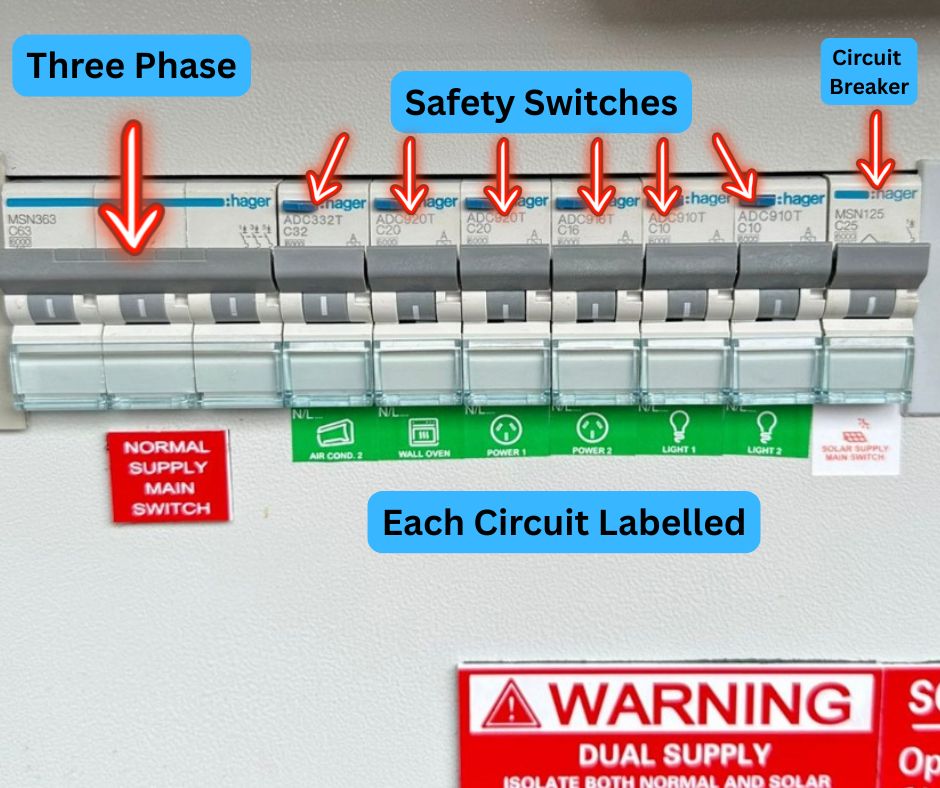Is It Essential to Upgrade Your Switchboard for Safe Home EV Charger Installation?
Absolutely! In many homes across Melbourne, the installation of an EV charger often necessitates a switchboard upgrade. Numerous older switchboards lack the required load capacity, RCD protection, and available circuit space that are essential for the safe and compliant installation of an electric vehicle charger. It is imperative to hire a licensed electrician to perform a comprehensive inspection and upgrade your switchboard. This ensures that your residence can safely support the charging of your EV without any associated risks, thereby enhancing both safety and efficiency.

With the increasing popularity of electric vehicles in Melbourne, more homeowners are choosing to install EV chargers in their garages or driveways. However, many are unaware that proper preparation of the electrical system is crucial, starting with a detailed evaluation of your switchboard. Ensuring that your electrical infrastructure is capable of supporting the demands of an EV charger is vital for both safety and efficiency. A well-prepared electrical system reduces the risk of potential hazards, ensuring that your charging process is smooth and reliable.
At Direct Point Electrical, we have successfully installed numerous EV chargers in Berwick, Narre Warren, and Cranbourne in Melbourne’s outer eastern suburbs. In nearly every instance, the switchboard is the first component we assess to verify compliance with safety standards necessary for effective and safe charging. Our extensive expertise guarantees that each installation adheres to local regulations while providing optimal performance and peace of mind for our customers.
Why Are EV Chargers Different from Standard Power Points for Home Installation?
EV chargers are specifically engineered to meet the unique demands of electric vehicles, distinguishing them from conventional household appliances such as toasters or washing machines. Most residential charging units, particularly the 7kW and 22kW models, require:
- A dedicated circuit designed to effectively manage the electrical load
- RCD protection as dictated by AS/NZS 3000 standards to ensure maximum safety
- Ample amp capacity, typically between 32A and 50A
- Effective load balancing to prevent the risk of overloading other circuits within your home
Consequently, connecting an EV charger to an outdated fuse box or an overloaded switchboard is not only imprudent; it poses serious safety risks and fails to comply with current regulations. For comprehensive guidance on the requirements for EV chargers in residential settings, it is essential to consult with professionals who understand the intricacies involved in safe installation.
How Do You Identify the Need for a Switchboard Upgrade?
If your home was built more than twenty years ago, it is highly probable that your switchboard is inadequate to support an EV charger. Here are some indicators we check during our evaluations:
- Old ceramic fuses or asbestos backing, both of which are outdated and pose health risks
- Absence of RCD or safety switch protection, crucial for preventing electrical accidents
- Limited circuit space preventing the installation of a new dedicated circuit
- Signs of burn marks, buzzing noises, or frequent tripping when using appliances
- Lack of a 3-phase supply if you intend to install a faster 22kW charger
Any of these warning signs indicate potential risks for both safety and EV compatibility in your home and should not be disregarded. Addressing these concerns promptly can safeguard your home and ensure efficient charging of your electric vehicle.
Note: The Electric Vehicle Council advises that a dedicated circuit be established for your EV. This precautionary measure helps prevent the overloading of existing circuits within your residence. When setting up a dedicated circuit, consider opting for a 15amp outlet and charger instead of the standard 10amp circuit. This adjustment can enhance your charging rate by 50% and significantly reduce your charging time by a third, making it a worthwhile investment for EV owners.

What Is the Process Involved in Upgrading Your Switchboard?
At Direct Point Electrical, we strive to make the switchboard upgrade process as simple and stress-free as possible for our clients:
- Site Assessment – We carry out a detailed inspection of your current switchboard, wiring, and main power supply to identify any deficiencies.
- Load Calculation – We evaluate whether your home can handle the additional load from the EV charger.
- Upgrade Planning – If an upgrade is necessary, we provide a comprehensive quote for a new compliant switchboard equipped with RCDs, surge protection, and ample space for the EV charger.
- Documentation & Compliance – We handle all necessary paperwork with your energy distributor (AusNet or United Energy) and issue a Certificate of Electrical Safety upon completion of the installation.
Depending on the current condition and layout of your switchboard, most upgrades can be completed in a single day. This allows you to quickly enjoy the convenience of charging your EV at home without unnecessary delays.
What Are the Electrical Compliance Requirements in Victoria for EV Chargers?
All electrical work performed in Victoria must comply with the AS/NZS 3000 Wiring Rules, which includes the installation of EV chargers. A licensed electrician is responsible for ensuring that:
- RCD protection is implemented for the circuit
- The load from the charger does not exceed the main switch capacity
- All necessary forms are submitted to your energy distributor
- A Certificate of Electrical Safety is provided upon project completion
Attempting DIY or unlicensed installations is not only illegal; it voids warranties and may lead to serious fire risks or denial of insurance claims. Always ensure that your electrical work is performed by qualified professionals to maintain safety and compliance.
What Actions Should You Take If You Already Have Solar Panels or Batteries Installed?
This is excellent news! However, it remains crucial to analyze how the EV charger will interact with your existing solar energy system. Balancing the load between solar energy, battery storage, and EV charging requires meticulous planning to ensure maximum efficiency.
We will collaborate closely with you to:
- Schedule charging times to optimize the use of solar energy during peak sunlight hours
- Confirm that your inverter and battery configuration can handle the energy draw from the charger
- Recommend suitable charger models that come equipped with smart load management features to enhance efficiency
Is It Necessary to Upgrade to a 3-Phase Power Supply for EV Charging?
Not necessarily. A 7kW charger functions effectively on single-phase power for the majority of users. However, if:
- You desire faster charging times
- You own two electric vehicles
- Or you are using high-load appliances simultaneously
… then considering a 3-phase upgrade could be advantageous. We can provide expert insights on this aspect during your initial inspection, ensuring you make informed decisions about your EV charging setup.
Essential Considerations for Successful EV Charger Installation
If you are thinking about installing an EV charger at your home, prioritizing your switchboard is critical. At Direct Point Electrical, we offer free site inspections, transparent pricing, and a smooth process to ensure that you have safe, efficient, and future-proof EV charging solutions customized to your home’s needs.
Whether you reside in Berwick, Narre Warren, or any location in Melbourne’s outer east, we have the perfect EV charging solution tailored to meet your specific requirements.
EV Charger Installations
The Article: Switchboard Upgrade for Home EV Charger Installation: Do I Need It? first appeared on https://writebuff.com
The Article Home EV Charger Installation: Is a Switchboard Upgrade Necessary? Was Found On https://limitsofstrategy.com

